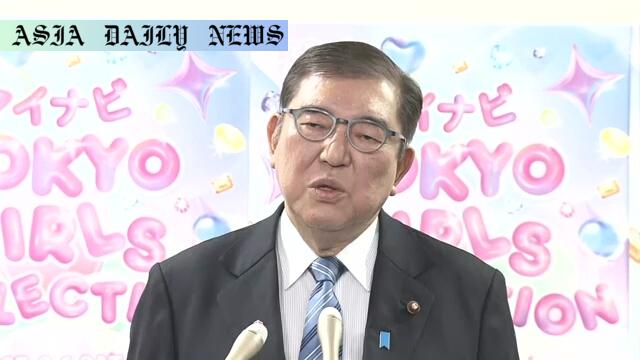Diplomacy is crucial for achieving peace in the wake of heated exchanges between Trump and Zelenskyy, says Japan PM.

Introduction: The Importance of Diplomacy
In the sphere of international politics, diplomatic relations often serve as the cornerstone for achieving peace. In a recent statement, Japanese Prime Minister Ishiba Shigeru shed light on the escalating tensions between the United States and Ukraine following an emotionally charged exchange between President Donald Trump and Ukrainian President Volodymyr Zelenskyy. Ishiba’s remarks centered around the principles of patience and compassion, underscoring their importance in fostering meaningful and lasting global cooperation.
The Context: Trump-Zelenskyy Exchange
The meeting in question between Presidents Trump and Zelenskyy was marked by sharp words and emotional undertones, showcasing the challenges inherent in international diplomacy. While the details of their discussions remained confidential, the tone of their engagement raised concerns across the global stage. Ishiba addressed these concerns by advocating for a more measured approach to diplomacy, one that prioritizes dialogue and shared objectives over emotional or reactive decisions.
Diplomatic Balance: Patience Meets Compassion
Prime Minister Ishiba’s commentary highlighted the delicate balance required in international relations. He pointed out that “venting emotions” could derail productive conversations, stressing the necessity of exercising patience to achieve beneficial outcomes. Compassion was another central theme in his address, as he emphasized understanding the challenges faced by international counterparts and working towards shared goals despite differences.
Japan’s Role in Uniting Nations
Japan has long been a supporter of international stability and peace, leveraging its influence as a key member of the Group of Seven (G7) nations. Ishiba assured that Japan would actively work to prevent divisions between the US and Ukraine, as well as among other G7 members. By fostering diplomatic unity, Japan aims to contribute to global peace, ensuring that disagreements between nations do not escalate into full-blown conflicts.
Lessons for the Global Stage
Drawing from Ishiba’s remarks, there are several takeaways for leaders worldwide. Firstly, the importance of setting aside personal grievances and emotional reactions in the interest of higher objectives cannot be overstated. Secondly, tangible steps must be taken to rebuild trust and facilitate ongoing dialogue, ensuring that miscommunications do not hinder progress. Lastly, the value of collective action across nations in safeguarding peace and stability cannot be ignored.
Conclusion: Hope for a Peaceful Resolution
Prime Minister Ishiba’s thoughtful remarks indicate Japan’s commitment to fostering peace amidst turmoil. His emphasis on patience, compassion, and a unified approach to diplomacy resonates as a timely reminder during challenging global times. As nations watch this situation unfold, the hope is that leaders will take lessons from Ishiba’s words and work collaboratively to address pressing global challenges. The road to peace might be arduous, but with diplomacy guided by empathy and understanding, progress remains possible.
Commentary
The Role of Diplomacy in International Peace
The insights shared by Prime Minister Ishiba underline an enduring truth about international relations: diplomacy remains one of the most powerful tools we possess in navigating complex global landscapes. His observation about the exchange between President Trump and President Zelenskyy provides a lens through which to analyze the broader implications of emotionally charged political discussions. When leaders lose sight of collective goals, the fallout can hinder diplomatic progress and inflame divisions.
The Relevance of Patience and Compassion
Patience and compassion—the core tenets of Ishiba’s remarks—are often overlooked in today’s fast-paced and emotionally volatile political atmosphere. Yet these traits are imperative for meaningful dialogue. Patience allows time for measured decisions, while compassion ensures that every stakeholder feels heard and understood. When leaders exemplify resilience and empathy, they pave the way for trust and consensus, leading to impactful and lasting resolutions.
Japan’s Commitment to Global Unity
Japan’s proactive stance in acting as a mediator further highlights its commitment to global peace. Ishiba’s assurance that Japan is willing to contribute to narrowing divisions among G7 nations is particularly notable in the current climate of global uncertainty. Such actions set a commendable standard for other nations to follow, stressing the importance of shared responsibility in addressing international challenges.
Takeaways for the Global Community
Ultimately, Ishiba’s remarks serve as a call to action for leaders worldwide. They emphasize that fostering peace requires not only a shared vision but also the willingness to engage in diplomacy grounded in mutual respect and understanding. For both citizens and policymakers alike, these values should anchor their approaches to solving disputes—whether on the global or local stage.


